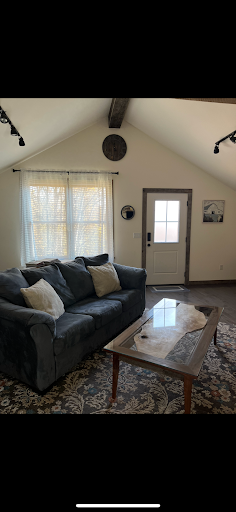By Cody Loy – [email protected] – Contributor
Roughly 140 attendees fill the Mountain View Room in the Sherrill Center, a mix of students, community members and educators. As they all settle in, a friendly, conversational vibe permeates the room.
Attention quickly settles on the podium in front. A formal introduction describes the prestige of the distinguished guest, author and educator Lisa Delpit. She adjusts the microphone and greets the crowd warmly in her soft voice. It doesn’t take her long to get down to business.
“I’ve been thinking about stories, and the power of stories to affect not only our personal beliefs, but even our performance,” Delpit says.
For the next hour, she and the audience go on a journey examining the stories that shape contemporary culture and its views on race.
Her first stories immediately grab the crowd’s attention. They contain verbiage demeaning of African-Americans and questioning their ability to succeed in various environments. This attention turns to shock when she reveals the personalities behind these statements. They include a former secretary of education and President Thomas Jefferson.
Delpit makes use of a volunteer to read the next story – a story of the English language. The story examines the connotations of various uses of words linked to lightness and darkness, whiteness and blackness. Delpit drew attention to how such associations can have a subconscious effect related to race.
“My mind was just exploding,” said Erin Hill, president of UNC Asheville’s Black Student Association, about the event. “(It) was the craziest thing to me. All of this – race, racial tension, struggles – if we thought about things in a different way, it would just be so different.”
Hill often finds herself as one of only a handful of black students in her classrooms. This has brought about an interesting set of circumstances for her.
“I was usually one of, if not the only, black (student) in my class. Ever since I was young, I was asked to give that ‘black input.’ As soon as we got to February, and it was Black History Month, (it was) ‘Erin, what do you think about Martin Luther King? What do you think about racism today?’” the 21-year-old said. “I’m not the voice (of the black community). But in the same light, it was training me to think that I am the voice.”
Hill said this still happens at the collegiate level.
“In a way it forces this wall to come up between myself and the other students in my class, because I’m assuming that the teacher’s going to pick on me to be the colored voice in the classroom,” the Charlotte native said. “In the face of ignorance, because a lot of times I am the only (black) voice, it’s harder for me to speak up for myself in a confrontational way. If a white student in the classroom says something that’s just way off-the-wall, it’s hard for me to come back as the only black person and fight that comment because there’s a bunch of other white faces in the crowd that will back up that person. So, in a way, it intimidates me sometimes.”
While Hill says she has done well in school, some students have not found the education system as easy to navigate.
Jessica Ali, a freshman at UNCA, went to five different elementary schools and three different high schools before enrolling at UNCA.
Ali said white students have a different study environment than their black peers.
“I think black people and minorities are at a disadvantage in the education system. Especially when it comes to things like the SAT. People do well (on those) because they have tutors and are able to afford all that kind of stuff, and a lot of people can’t (afford that). So I feel like that’s an unfair advantage,” the Orlando native said.
Ali also said she feels teachers should recognize students all have different backgrounds and talk to them to gain insight on where they come from, a point echoed in Delpit’s book.
While the speech generated a favorable response from the crowd in attendance, an important question remains.
“People come to lectures that interest them, so how do you get to the people that need the information the most?” asked Hill. “Even with (BSA), it’s the biggest thing I’ve struggled with. How do we connect to people who need the information the most? The people who just don’t care and the people who aren’t interested in being educated or in educating themselves on social issues or education issues or racial issues – how do you get to them?”
Latest Stories
- Questions On the Quad Episode 11
- What Do Blue Banner Staff Listen To?
- Asheville residents at odds over U.S. financial assistance to Ukraine
- The UNC Asheville Saber Club’s duels remain, moved to AC Reynolds Green
- UNCA League of Legends takes first in stunning finals match against HPU
- From passion to professional play: How a UNCA League of Legends MVP hit their stride
- Old UNCA sorority still has its footprints on campus
- Mass communication students visit Charlotte to watch Hornets game
- Blue Banner Connections #1
- Sex toys get luckier than traditionalist men


















